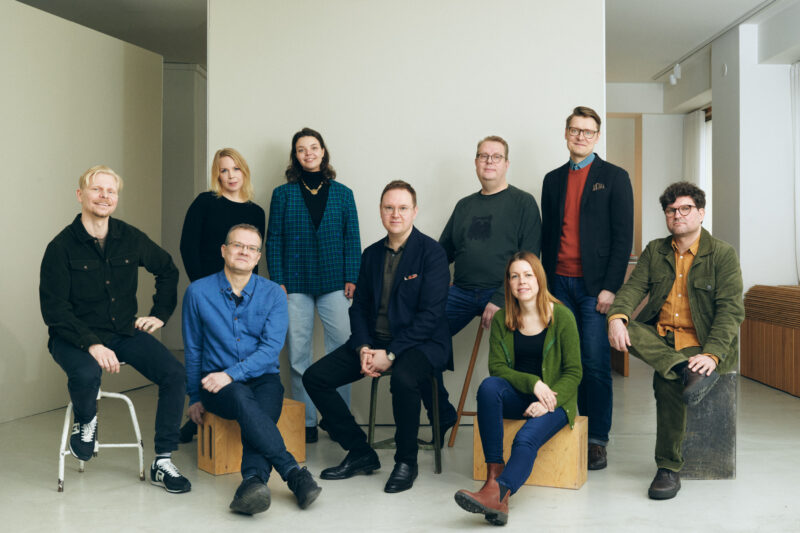
BIOS researchers Tero Toivanen, Karoliina Lummaa, Tere Vadén, Tellervo Ala-Lahti, Paavo Järvensivu, Ville Lähde, Emma Hakala, Jussi Ahokas ja Antti Majava. Missing from the picture is Jussi T. Eronen. Photo by Ilkka Saastamoinen
What is BIOS?
The material underpinnings of societies have become a key issue due to climate change and other environmental problems, as well as due to geopolitical concerns. We need to understand ecosystems and cultures as more and more densely intertwined. The informational and experiential challenges are huge as societies are developing infrastructures and practices for energy and food production, habitation and travel for decades to come.
In addition to citizens and decision makers, scientists have found it difficult to form a general view of the central environmental and resource factors and their cultural, economical and political effects. These questions can only be answered by crossing individual disciplines.
BIOS Research Unit foresees socio-ecological changes that will affect our society deeply, and does it in an interdisciplinary way, around a communal table. In addition to research, we reserve a lot of time for making information understandable and accessible. BIOS carries forward research-based knowledge about socio-ecological development paths beyond quarter years and electoral terms.
BIOS was established in 2015. Since its inception, BIOS has been funded by the Kone Foundation. We have also received project-specific funding from a variety of sources. From 2018 to 2023, BIOS was part of the WISE research consortium funded by the Strategic Research Council.
Our researchers have for years created tools for interdisciplinary and artistic collaboration, and have conveyed environmental information for the use of various sectors of society. In addition to the Finnish academic community, we collaborate with international research units.

